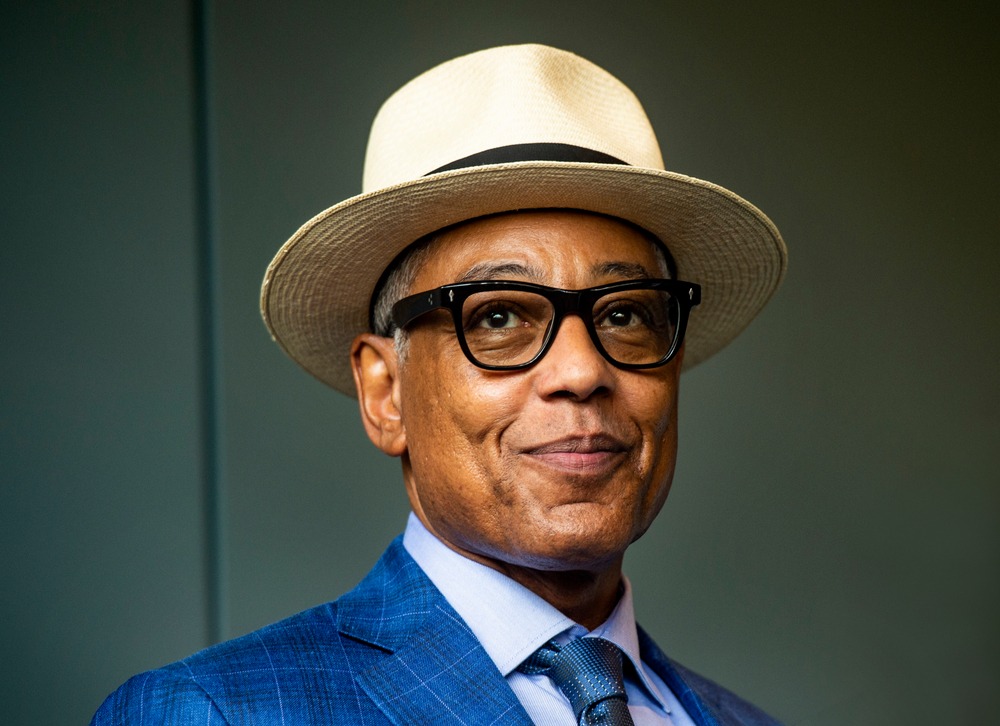
Giancarlo Esposito is best known for portraying the villainous Gustavo Fring in the AMC series Breaking Bad and Better Call Saul. He also plays the powerful Moff Gideon on Disney+’s The Mandalorian, Stan Edgar in Amazon’s The Boys and many other memorable characters. His countless film performances can be seen in Do the Right Thing, The Usual Suspects and Malcolm X.
The Emmy-nominated actor has been working in the industry since his Broadway debut back in 1968. But Esposito’s early years of acting were marked with career struggles, and he detailed his unique path in the Washington Post.
Initially, when roles for Black actors were scarce, Esposito portrayed an African-American slave child opposite Shirley Jones in a short-lived musical. “I knew that I wanted to play characters who were more expansive,” he says. So he started to play around with his appearance.
How Diversifying His Look Served Giancarlo Esposito
“When I was very young, I realized my hair would do anything. I could sweep it back, slick it down, and I could look Spanish,” he recalls. In turn, the young actor learned to speak a little Spanish. “It was really survival. But what I realized in doing that is that I was expanding myself to be able to have more of a repertoire.”
It worked. Soon enough, he was cast as characters named Esteban, Julio and Ramos. Work continued to roll in. In Trading Places, he played Eddie Murphy’s cellmate and a cadet opposite Tom Cruise in Taps.
But when Esposito performed with the Negro Ensemble Company in 1980, he became acquainted with an up-and-coming writer-director named Spike Lee and soon found himself cast in several of Lee’s projects (School Daze, Mo’ Better Blues, Malcolm X). In Do the Right Thing, he played the unforgettable Buggin’ Out who asks the local Italian pizzeria owner, “Hey, Sal, how come there ain’t no brothas on the wall?”
“I started to be discovered by African-American people,” the 66-year-old actor remembers. “I’d been around a long time before that. They would claim me, which felt like love. It felt like a wonderful thing to me. But I’ve always been Black. I’ve always been Italian and Black.”
Going Beyond Race to Become a Powerful Actor
In subsequent years, Esposito found himself being cast as “street toughs and drug dealers,” limiting his career. “I just didn’t want to do that anymore. I thought there are other parts of me as an African-American man, as a mixed-race human being, that I’d like people to know and understand.” Unfortunately, those roles were not forthcoming.
However, Esposito questioned his motives regarding his identity. “I had to ask myself, ‘Is this me trying to escape my Blackness? Is it just me trying to fit in and be White because the White boys are working?’ I had to get very clear with myself: No, this is me creating space.”
Esposito wanted to portray human beings rather than “play a color.” “I didn’t want to play a race. I wanted to play a person. And I’m not saying that there’s a Black, there’s a White, and then there’s Giancarlo Esposito. But maybe I am saying that. So I started to seek out roles that would allow me the ability to do that,” he recalls.
Breaking Stereotypes to Build An Acting Empire
Esposito worked on his acting style to define his independence. “I kind of figured out how to create my own style, my own place. It took time for people to see me as me.” It was a way to show himself as a “complete human being.” This changed everything for the actor.
Soon enough, “I started to play bosses,” Esposito said regarding his 2002 role in the TV legal drama series Girls Club. “And I realized, ‘Oh, okay, this is an opportunity.’ It was really a great opening for me to show who I really was. And it kept going like that.”
Esposito soon was playing a Chilean-American drug lord in Breaking Bad and Better Call Saul, a terrifying villain in The Mandalorian and a sociopath in The Boys.
Esposito was determined to be seen as an individual and not a stereotype. “It’s not about me anymore,” the star insists. As his career has shifted in recent years, Esposito says, “Now I play roles in a different way. I look at their impact on our society.”
Want to get your acting career started? Sign up or login to Casting Frontier and start auditioning today!
You may also like:




